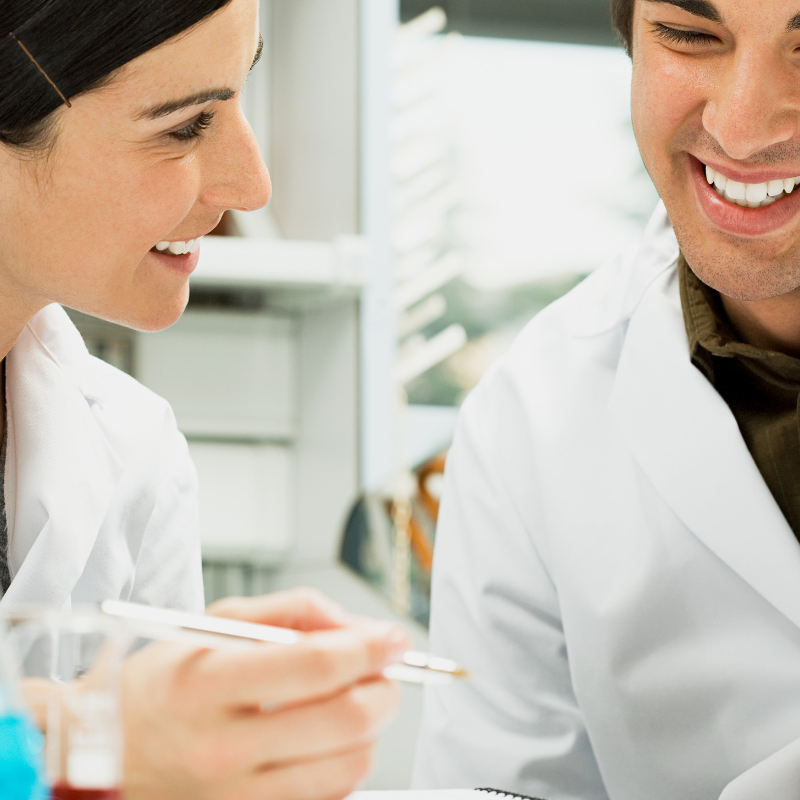Testimonials
Mass Cytometry, Imaging Mass Cytometry and Machine Learning, July 2021
Traveling Lab: Dr. Juliet Emamaullee, MD, PhD; University of Southern California, Los Angeles, CA
Host PI: Dr. Brice Gaudilliere, MD, PhD; Stanford University, Palo Alto, CA
The T3R program was instrumental for our lab as we are currently adopting complex techniques including CyTOF and Imaging Mass Cytometry... Visiting a lab which studies pregnancy immunology with a unique expertise in these techniques was valuable as they shared their protocols, demonstrated staining and acquisition procedures, and organized a multi-lab meeting where individuals from each group were able to present their most recent data and receive guidance and feedback. This experience was a fun, engaging and truly efficient way for our lab to adopt these new techniques.
-Dr. Brittany Roque, Post-Doctoral Research Fellow
Machine Learning Methods, Joint Modeling and Matching Algorithms, November 2019
Traveling Lab: Dr. Peter Reese, MD MSCE; University of Pennsylvania, Philadelphia, PA
Host PI: Dr. Alexandre Loupy, MD PhD; Paris Translational Research Center for Organ Transplantation, INSERM, Paris, France
The T3R grant was an excellent opportunity for our lab to collaborate with the Paris Transplant Group and share techniques to advance common interests – improving transplant outcomes. This is a unique grant opportunity as it provides flexibility in allowing us to choose the research technique we want to learn, and it also gave us the option to choose which lab members visited the collaborating site. Further, the Paris Transplant Group was also excited to welcome Dr. Potluri because of the fact that he would teach them about important matching techniques and employ those methods to advance a Paris Transplant group research project. Importantly, the T3 grant also allowed us to understand how our collaborating research group structures their team and optimizes efficiency. Finally, since our collaborating lab was located in a country with a different health system, we had the opportunity to understand some of the benefits and challenges faced by their transplant community. We strongly believe that the T3R grant is an excellent opportunity and encourage other research groups to apply!
-Dr. Vishnu Potluri, MD MPH, Instructor of Medicine
Metabolics, November 2019
Traveling Lab: Dr. Tom Blydt-Hansen, MD FRCPC; University of British Columbia, Vancouver, BC
Host PI: Dr. David Wishart, PhD, M.Phil; University of Alberta, Edmonton, AB
Our research program is broadly focused on identifying diagnostic tools in transplantation using metabolomic methods. Previously, we have worked closely with the Wishart Lab for sample analysis, using commercial and custom kits. ...We will continue to work Dr. Wishart’s lab, to develop custom kits that will be used for both urinary metabolomic and plasma immunometabolomic testing of research samples from the clinic and from multi-center studies.
-Or Golan, Graduate Student
Imaging of T Cell Infiltration in Grafted Tissue in the Anterior Chamber of The Eye, August 2019
Traveling Lab: Dr. Megan Levings, PhD; University of British Columbia, Vancouver, BC
Host PI: Dr. Brian Fife, PhD; University of Minnesota, Minneapolis, MN
This travel program was very important to our lab as I would not have been able to have such hands-on practice with live imaging without it. While my supervisor is experienced with the surgical portion of this technique, we were less knowledgeable with the imaging aspect. Without this travel opportunity, our optimization process would have been long and labor intensive, as observing how the Fife lab prepares their microscope and mice for imaging revealed small details we likely would have missed, as well as numerous tips to make the imaging easier for us as researchers, as well as less stressful for the animals. Another very helpful takeaway from this trip we wouldn’t have gotten without this travel program was how to use the imaging analysis software. This program is completely new to our facility and therefore we would have had to learn how to use the software from scratch. There are many tools, plug-ins, and options that would have been very confusing to use or are just not needed for our purposes. However, while we were there, the Fife lab walked us through the tools they used for the purposes we wanted, as well as described the various tools that would enhance our imaging movies.
-Vivian Fung, Technician

